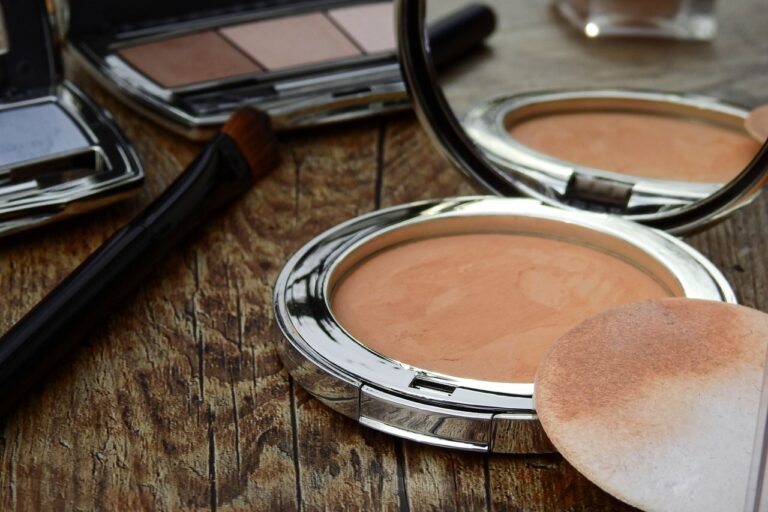
Pregnancy and Birth الحمل والولادة
١. كم هو عدد الأفراد العادي للعائلة في ثقافتك؟
٢. هل في تغيّر في عدد الأفراد في العائلة من القرن الماضي إلى الحين؟
٣. ايش هي الأسباب لإنشاء عائلة كبيرة أو صغيرة؟
٤. في ثقافتك على أي أساس يقرر الزوج والزوجة عدد الأطفال؟
٥. هل في تفضيل ثقافي لإنجاب ذكور أو إناث؟ ليش تتوقع؟
٦. ايش الضغوط الخارجية على الزوج والزوجة في إنجاب الأطفال؟
٧. كيف يتعلم الناس عن الجنس؟ هل في المدرسة أو من أمهاتهم وآبائهم أو أصدقاءهم أو في فترة الزواج؟
٨. من الملام في حال حصول عقم (الزوج أو الزوجة)؟
٩. هل فيه اعباء اجتماعية على شخص عقيم أو امرأة عاقر؟
١٠. في ثقافتك ايش الرأي السائد عن علاجات العقم؟
١١. إذا زوج وزوجة يتعالجون من العقم، هل يتكلمون عن الموضوع أو يخفونه؟
١٢. أي علاجات العقم أكثر جدلاً؟
١٣. لو ما قدرت تجيب أطفال، هل تخضع لعلاج العقم؟
١٤. ايش هي الحيل والنصائح اللي سمعتي فيها عن كيف تحملين بسرعة؟
١٥. ايش هي الحيل والنصائح اللي مؤمنة فيها عن طريقة الحمل السريع؟ وليش؟
١٦. متى عادة تخبّر الزوجة زوجها أنها حامل؟ ليش ممكن تنتظر وليش ممكن تخبّره بدري؟
١٧. من عادة أول شخص يعرف عن الحمل غير الزوج؟
١٨. متى عادة يخبّر الزوج والزوجة الناس انهم راح يجيبون طفل؟ ليش ممكن ينتظرون وليش ممكن يخبّرونهم بدري؟
١٩. كيف عادة يخبّرون الزوج والزوجة الناس انهم راح يجيبون طفل؟ هل طريقة إخبار العائلة تختلف عن طريقة إخبار الأصدقاء؟
٢٠. ايش هي الخرافات أو حكايات الزوجات القديمات المعروفة في بلدك عن الحمل؟ (مثلا لا تحط ايديك فوق راسك ولا الحبل السري راح يلتف حول رقبة الجنين، إذا البطن مرتفع أو نازل والجنين بيكون ولد أو بنت)
٢١. في فترة الوحام ايش كنتي تحبين تاكلين؟
٢٢. هل واجهتي معاناة في فترة الوحام؟ مع زوجك أو أي شيء ثاني؟
٢٣. ايش التغيرات اللي تصير لجسم المرأة لما تحمل؟
٢٤. كيف تتعايش الحريم مع هذه التغيرات؟ (مثلا التضخم والسكري والوحام وصغر المثانة)
٢٥. هل في تقاليد أو معتقدات تأثر على وقت وكيفية الزوجين لممارسة العلاقة وقت الحمل؟
٢٦. ملابس الحمل هل هي مصنوعة حتى تبيّن أو تخفي بطن الحامل في ثقافتك؟
٢٧. ايش عادي أكثر، ان تكشفون عن جنس الجنين قبل الولادة أو تنتظرون وتخلونها مفاجأة؟
٢٨. مشاركة تفاصيل عن الجنين (مثل الاسم والجنس) هل عادي أو أفضل بعد الولادة؟
٢٩. هل العين أو الحسد له دور كبير في صحة الجنين في ثقافتك؟
٣٠. ايش أنواع الأنشطة اللي يحثون الأمهات ان يوقفونها طوال فترة الحمل؟ (مثلا التمارين أو التدخين أو شرب الكافيين)
٣١. ايش هي الأشياء اللي المفروض ما تقولوها للحامل؟ (مثلا “بطنك كبير أو صغير،” أو “هل كان الحمل مفاجأة؟،” الخ)
٣٢. ايش هي العلامات اللي الناس تقول إن منها راح تبيّن إذا الأم حامل ببنت أو ولد؟ (مثلا غثيان صباحي أكثر اذا هي بنت، حب الشباب أكثر اذا هي بنت، شعر كثيف اذا هو ولد، تحب الموالح إذا هو ولد والحلى اذا هي بنت، الخ)
٣٣. هل كان الغثيان الصباحي شديد عندك؟
٣٤. ايش نصائحك لوحدة تعاني من الغثيان الصباحي؟
٣٥. أي نوع فحص حمل مستخدم أكثر شيء؟
٣٦. هل هو شيء عادي عمل فحوص قبل الولادة للتأكد اذا فيه مشاكل صحية (مثلا متلازمة داون، فقر الدم المنجلي، الخ)؟
٣٧. ايش هي المعتقدات عن التوأم أو الثلاثة توائم، الخ؟ (مثلا هل هذا شيء زين أو سيئ، ايش سبب حدوثه)
٣٩. كيف يتعاملون الوالدين لو كان عندهم توأم؟
٣٩. من يوفّر رعاية ما قبل الولادة؟ كيف ترتيب جدول متابعة الحمل؟
٤٠. متى الأم تسوي السونار؟
٤١. هل السونار العادي أو ثلاثي أو رباعي الأبعاد مستخدم أكثر؟
٤٢. هل في جلسات حق الحمل والولادة؟ ومن ايش تتكون؟
٤٣. هل ممكن تنطرد المرأة من العمل لأنها حامل؟
٤٤. أيش مُقترحات وحكايات الأمهات القديمة الي تنقال للحوامل إذا قرّبت الولادة بهدف تسريع الولادة؟ (مثلا سوق على شارع كله مطبات، أو شرب زيت الخروع، أو ممارسة العلاقة مع الزوج، أكل التمر، أكل الأناناس، الخ)
٤٥. هل يتم تحريض المرأة على المخاض “الطلق” أم تنتظر حتى يدخل الجسم في المخاض؟
٤٦. هل تفضلين الولادة بشكل طبيعي أو الولادة القيصرية؟
٤٧. أيش هي خيارات تخفيف الألم المتوفرة؟
٤٨. هل تبين إبرة الظهر أثناء الولادة؟ ليش؟
٤٩. من وجهة نظر المجتمع هل الولادة مع أو بدون إبرة الظهر أفضل؟
٥٠. أيش كان أصعب شيء في تجربة ولادتك؟
٥١. أيش كان أحسن شيء في تجربة ولادتك؟
٥٢. هل هو شيء شائع (أو حتى قانوني) في بلدك أن تلد مع الداية بدل الطبيب؟
٥٣. قبل انتشار المستشفيات، كيف كانت المرأة تلد؟
٥٤. مين عادة يكون في غرفة الولادة مع الأم؟
٥٥. ما هو دور الأب في الولادة؟
٥٦. كيف تتم رعاية الأم والطفل أثناء المخاض وبعد الولادة؟
٥٧. ما هي تجربة الولادة النموذجية؟ ما هي التكملة الأساسية للأحداث؟ (مثلا نزول الماء أو الانقباضات، الذهاب إلى المستشفى، تسجيل الدخول إلى غرفة الفحص، التحقق من التمدد، الانتقال إلى غرفة الولادة إذا بدأ المخاض “الطلق”، يعطي طبيب التخدير إبرة الظهر في الوريد، رعاية الممرضات حتى خمس دقائق قبل مجيء الطفل، يستلمه الطبيب، الأم والطفل ينتقلون إلى غرفة الإنعاش ليوم واحد، العودة للمنزل)
٥٨. أيش رأي ثقافتك حول اللقاحات أو التطعيمات؟ هل يعطون الحقن للأطفال بعد الولادة مباشرة؟ انت متى تمسح لطفلك ياخذ اللقاحات؟
٥٩. ايش هي الأشياء الثانية الي تتضمن تكلفة الولادة، مثلا الختان أو تخريم الأذن أو التطعيم؟
٦٠. ايش عادة يصير للمشيمة؟
٦١. كيف يتم الاعتناء بالحبل السري عادة؟
٦٢. متى أول استحمام للطفل؟
٦٣. شو التقاليد أو الاعتبارات المهمة حول تسمية الطفل؟
٦٤. من يزور الأم اثناء جلستها في المستشفى؟ ايش يجيبون؟
٦٥. من يساعد في الرعاية بعد الولادة، وإلى متى؟
٦٦. هل من الشائع أن تبقى الأم الجديدة في بيتها أو تروح لبيت شخص ثاني؟ إلى متى؟
٦٧. ماذا تعرف عن عملية الشفاء بعد الولادة؟
٦٨. ما هي الطقوس والتقاليد المرتبطة بالولادة؟
٦٩. ما هي الطقوس والتقاليد المرتبطة بالولادة لأول مرة؟
٧٠. كيف تتعلم الأمهات الجدد كيفية الرضاعة الطبيعية في ثقافتك؟
٧١. هل الرضاعة الطبيعية أو الصناعي أكثر قبولاً /شيوعاً في ثقافتك؟
٧٢. وش الحيل أو النصائح اللي بتعطيها لأم جديدة تتعلم الرضاعة؟
٧٣. هل من المقبول للأم المرضعة إظهار صدرها عند وجود نساء أخريات؟ عندما تكون في مجموعات مختلطة أو في الأماكن العامة؟
٧٤. ايش تعرف عن اكتئاب ما بعد الولادة؟
٧٥. كيف تعتقد أن ثقافتك أو دينك تؤثر على نظرتك لاكتئاب ما بعد الولادة وكيف تستجيب له؟
٧٦. كم مدة إجازة الأمومة عادة؟
٧٧. كم مدة إجازة الأبوة عادة؟
٧٨. هل تتم حماية وظيفة الأم الجديدة أثناء إجازة الأمومة؟
٧٩. هل إجازة الأمومة أو الأبوة مدفوعة الأجر أم إجازة غير مدفوعة الأجر؟
٨٠. لما يرجعون للشغل، هل من الشائع إعطاء الأمهات الجدد فترات إرضاع أثناء النهار؟
٨١. في أي عمر تبدأ الأمهات في إطعام أطفالهم طعام صلب، وكيف يتم هالشي؟ (مثل سيريالاك للأطفال، أو الأطعمة المهروسة من اللي تاكل العائلة، أو الأطعمة اللينة الي ممكن يأكلها بأيديه، الخ)
- What’s the normal number of children to have?
- How has the number of children changed over the past century in your country?
- What are the reasons for having a big family? A small family?
- How do couples decide on the number of children in your culture?
- Is there a cultural preference for girls or boys? Why is this the case?
- What kind of outside pressures are on a family to have children?
- How do people typically learn about sex? (at school, from parents, from their friends, at their wedding, etc.)
- Who is usually blamed for infertility?
- Are there social stigmas for infertile men or barren women?
- What does your culture think of infertility treatments?
- Do couples reveal that they are getting infertility treatments or do they hide it?
- Which infertility treatments are controversial in your society?
- Would you do infertility treatments if you couldn’t get pregnant?
- What tricks and tips have you heard about trying to getting pregnant?
- Which tips and tricks about how to get pregnant do you believe or not? Why?
- When does a wife usually tell her husband she is pregnant? Why might she tell him soon or why might she wait?
- Who is the first to know about the pregnancy besides the husband?
- When do couples usually make an announcement that they are pregnant? Why might they do it sooner and why might they wait?
- How is a birth announcement made? Is how you tell family different than how you tell friends?
- What superstitions or old wives’ tales are common in your country about pregnancy? (i.e. don’t reach over your head or the cord will be around the baby’s neck, carry high/low and it’s a boy/girl)
- What kinds of cravings did you/your wife have when you were pregnant?
- While you were pregnant, were there certain scents (like your husband’s cologne) you couldn’t stand?
- What changes happen to a woman’s body when she is pregnant?
- How do pregnant women usually deal with these changes (i.e. bloating, diabetes, cravings, small bladder)?
- Are there beliefs or traditions that affect when and how a couple can have sex while pregnant?
- Are maternity clothes constructed to show off or hide a mother’s baby bump?
- Is it more common to find out the gender early or wait and let it be a surprise?
- Is it more common to share details about the baby (its name and gender) before the birth, or to not share until after the baby is born? Why is that?
- Does the evil eye have a big role in the baby’s health in your culture?
- What kinds of activities are mothers encouraged to stop while pregnant (i.e. exercise, caffeine, smoking, etc.)?
- What kinds of things shouldn’t you say to a pregnant woman? (i.e. You’re so small/big, was it a surprise, etc.)
- What kinds of things do people say you can look for to tell if you will have a boy/girl? (i.e. more morning sickness if it’s a girl, acne/bad hair if it’s a girl, salty cravings if it’s a boy, etc.)
- Did you have bad morning sickness?
- What advice, tips, or tricks do you have for someone struggling with morning sickness?
- What kind of pregnancy test is the most commonly used?
- Is it common to have unborn babies tested for issues before birth? (i.e. downs syndrome, sickle cell anemia, etc.)
- What beliefs do people have about twins, triplets, etc.? (i.e. is it a good or bad thing, what causes them
- How do parents deal with twins or triplets?
- Who provides prenatal care? How often do mothers visit them?
- How often do mothers get ultrasounds?
- Are 2D or 3D ultrasounds more common?
- Are there childbirth training classes? If so, what do they look like?
- Can women be fired for being pregnant?
- What tricks or old wives’ tales have you heard for how to jump-start labor? (i.e. going for a ride on a bumpy road, drinking castor oil, having relations with husband, etc.)
- Are women induced into labor or do they wait until the body goes into labor?
- Would you rather give birth naturally or through a C-section?
- What pain management options are there?
- Would you like an epidural while giving birth? Why or why not?
- Is giving birth with or without an epidural seen as better than the other?
- What was the most difficult part of your birth experience?
- What was the best part of your birth experience?
- Is it common practice (or even legal) in your country to give birth with a midwife instead of a doctor?
- Before hospitals were common, how did women give birth?
- Who would be in the labor/delivery room with the mother?
- How involved is the dad?
- How are the mother and baby cared for during labor and delivery?
- What is a typical birth experience? What is the basic sequel of events? (i.e. water breaks or contractions, drive to hospital, check checked into 1 test room, check dilation, if in labor move to delivery room, anesthesiologist gives an epidural after IV, nurses care until 5 minutes before baby comes, doctor delivers, you and baby move to recovery room for 1 day, go home)
- What does your culture think about vaccines? Do they give shots to babies right after birth? Would you?
- What other things are included in giving birth, i.e. circumcision or ear-piercing or vaccines?
- What is typically done with the placenta?
- How is the umbilical cord usually taken care of?
- When does the baby take their first bath?
- What traditions or important considerations go into naming a baby?
- Who comes to visit the new mother while she is still in the hospital? What do they bring?
- Who helps with care after childbirth, and for how long?
- Is it more common for the new mother to stay in her own home or go to someone else’s home? For how long?
- What do you know about the healing process after giving birth?
- What rituals and traditions are associated with giving birth?
- What rituals and traditions are associated with giving birth for the first time?
- How do new mothers learn how to breastfeed in your culture?
- Is breastfeeding or bottles more acceptable/common in your culture?
- What tricks or advice would you give for a new mom learning to feed her baby?
- Is it considered acceptable for a breastfeeding mother to show her breast when around other women? When in mixed groups or in public?
- What do you know about postpartum depression?
- How do you think your culture or religion affect your view of postpartum depression and how you respond to it?
- How long is maternity leave usually?
- How long is paternity leave usually?
- Is a new mother’s job protected while she is on maternity leave?
- Are maternity or paternity leave paid or unpaid leave?
- Once they return to work, is it common to give new mothers nursing breaks during the day?
- At what age do moms start feeding their babies solid food, and what does that look like? (i.e. baby cereal, jars of baby food, mashed what-the-family-is-having, soft finger foods, etc.)






